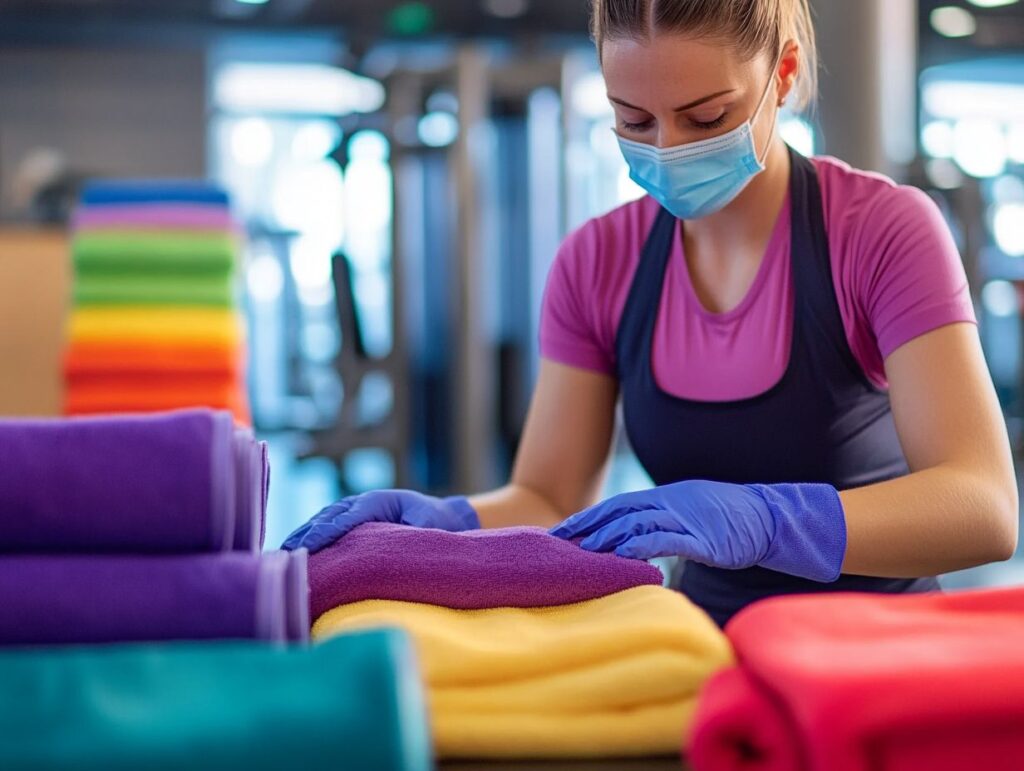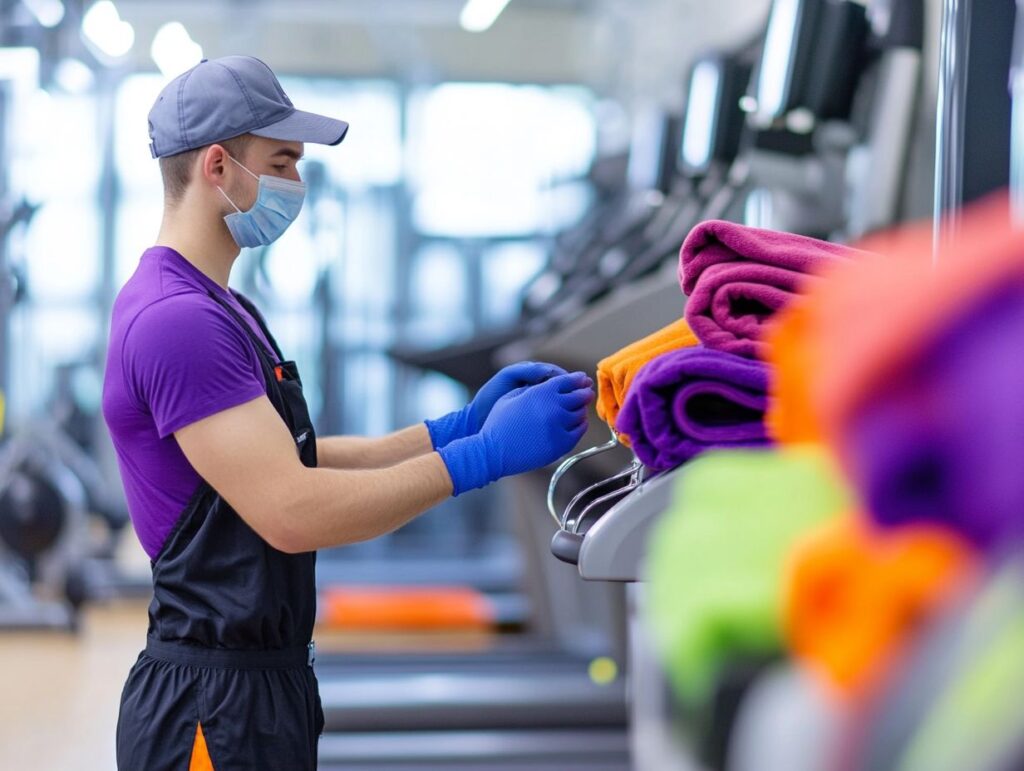A few years ago, wiping down a desk or offering hand sanitiser in the office felt like a bonus, not a basic expectation. The pandemic flipped the script almost overnight. Offices that once got by with a weekly cleaner now face questions about air quality, sanitising schedules, and cleaning certifications. Staff no longer assume hygiene is someone else’s problem; they expect it to be front and centre, every single day.
The truth is, while the masks have mostly come off and social distancing markers have faded, the way we think about cleanliness has changed for good. Not all the emergency measures stuck, but the best of them have shaped a new normal for offices across London and beyond. Whether you run a start-up in Shoreditch, a corporate HQ in Canary Wharf, or a gym in Clapham, hygiene now has a permanent seat at the table.
The Hygiene Awakening: Why Things Will Never Be the Same
Before COVID, most office cleaning flew under the radar. Few employees noticed who cleaned their desk, how often the toilets were sanitised, or if the air con vents were full of dust. That blissful ignorance disappeared fast in 2020.
Companies suddenly realised that good hygiene wasn’t just a staff perk; it was part of their legal duty of care. Insurance companies began including hygiene clauses in commercial policies. Employees started raising questions during job interviews about cleaning schedules and air quality. Visitors judged businesses not just on service or décor, but on how safe the space felt.
Today, hygiene standards shape company reputation. A clean, safe office signals respect and responsibility. Letting standards slip isn’t just risky from a health point of view—it’s bad for business. For the cleaning industry, it’s been a wake-up call too. Professional cleaning teams must now meet much higher expectations, with greater transparency and precision.
Small Offices and Start-ups: Balancing Budgets and Expectations
What’s Changed
Small offices, co-working hubs and start-ups often had informal setups before COVID. A quick hoover at the end of the day, a weekly kitchen wipe-down, and the odd deep clean might have passed unnoticed. Not anymore.
Shared desks, meeting rooms and hotdesking areas now demand daily disinfecting. Kitchens must be cleaned more thoroughly and more often, with stocked hand soaps, paper towels and cleaning sprays always available.
Hand sanitising stations have gone from ‘nice idea’ to non-negotiable. Even a 10-person office needs at least a few sanitiser spots, plus visible reminders to use them.
What Stays
The informal culture of small offices hasn’t disappeared. But it’s now balanced with written hygiene policies and clear staff expectations. The days of asking employees to clean their own desks or empty the bins have largely ended. Professional cleaning services, even part-time, are standard.
Remote work means fewer people in the office each day, but hygiene standards stay high regardless of headcount. Whether two or twenty people are in, clients and staff expect the same consistent level of care.
Large Corporate Offices: Hygiene as Part of Corporate Branding
What’s Changed
Big offices already had cleaning teams pre-pandemic, but the style of cleaning has shifted dramatically. Where cleaning crews used to work after hours, many corporates now employ visible daytime cleaners. Seeing someone wipe down a lift button or disinfect a meeting room between sessions reassures staff and visitors alike.
Air quality has also become a headline concern. Companies have upgraded HVAC systems, installed air purifiers, and committed to regular maintenance. Some even post monthly air quality stats to reassure staff.
During office refurbishments, firms increasingly choose antimicrobial surfaces, touchless taps, and self-cleaning lift buttons—design choices that would have seemed almost paranoid five years ago.
What Stays
Large premises always required a professional, full-time facilities management team, and that remains unchanged. What’s different is the sheer visibility of hygiene work and how it’s now folded into the overall corporate identity.
Reception areas, lifts, and meeting rooms remain focal points for cleaning teams. Staff now notice if those areas don’t look spotless, and they aren’t shy about speaking up.
Other Commercial Spaces: Post-Covid Fitness Gyms
What’s Changed
Gyms were hit hard by COVID restrictions, and their path back to customer confidence has been through supercharged hygiene. During lockdowns, gyms were deep-cleaned between sessions. Today, the requirement for cleaning between every use has relaxed slightly, but nightly deep cleans are absolutely expected.
Members look for hygiene certifications displayed prominently. Those COVID-safe badges from 2020 may be less visible now, but the standard they set still matters. Facilities that slack off on cleaning lose trust quickly—and trust is everything in fitness.
Sanitary product provision has become standard, with wipes, sprays, and hand gels available everywhere from treadmills to weight benches.
What Stays
Spotless locker rooms, showers and toilets were always key to a good gym experience, and that’s not changed. Members also expect cleaning staff to be a visible, reassuring presence during opening hours.
Ventilation remains a huge priority. Many gyms upgraded systems during lockdowns, and now proudly display signage showing that air is fully exchanged multiple times per hour.
New Hygiene Standards: Must-Haves Across All Premises
Regardless of size or sector, some new hygiene standards apply to everyone:
- Hand sanitiser stations must be permanent and easy to access.
- Visible cleaning logs showing when an area was last cleaned or sanitised boost confidence.
- Touchpoints like door handles, lift buttons and shared keyboards must be disinfected at least daily, often more.
- Clear signage reminding people to maintain good hygiene matters as much as the actual cleaning.
- Employee hygiene training is increasingly included in onboarding processes, especially in industries with frequent customer contact.
Meeting these expectations shows care not just for staff and visitors, but for the brand as a whole.
Final Reflection
Post-COVID, office hygiene standards aren’t going back to the old days. People want safe, visibly clean workspaces, whether they’re taking a yoga class or signing a deal in a boardroom. Companies that invest in professional cleaning services now do more than just fight germs; they build trust, loyalty, and a stronger future.
Hygiene is no longer a hidden backstage operation. It’s front and centre—and staying there.

